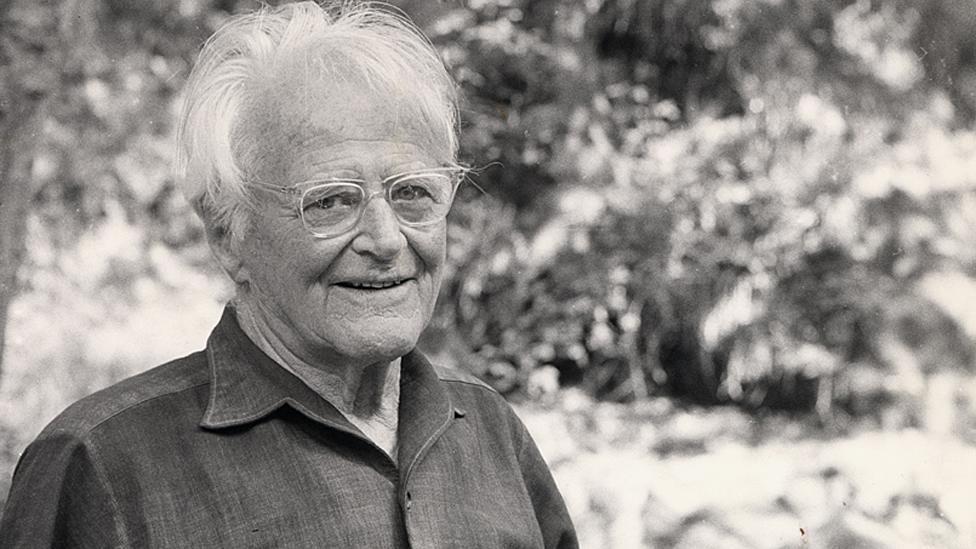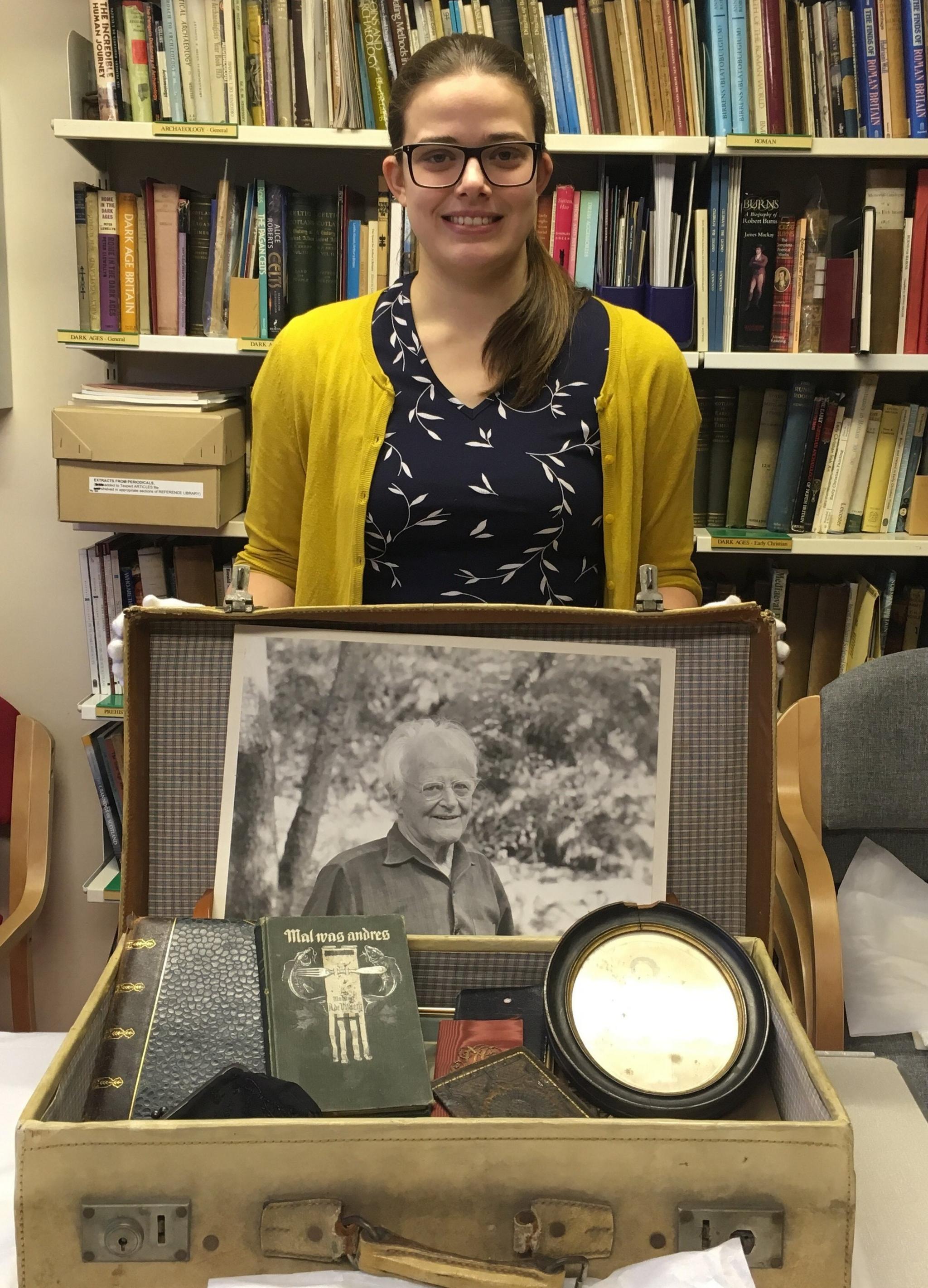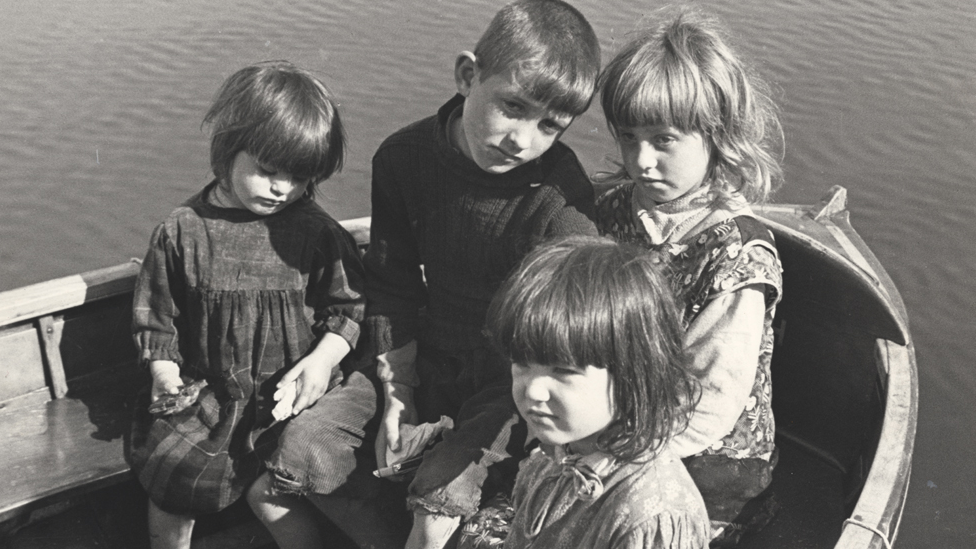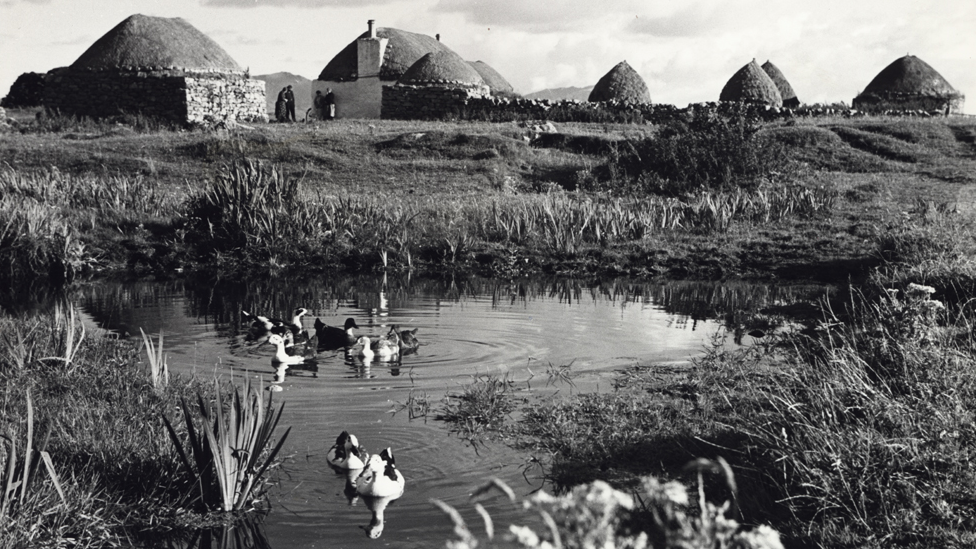Dr Werner Kissling's suitcase contents catalogued in Dumfries
- Published

Dr Werner Kissling became a noted photographer of life in Scotland, particularly the Western Isles
German aristocrat Dr Werner Kissling was born into great wealth but ended his days in a Dumfries bedsit.
In between times he became a noted photographer - particularly of life on the Western Isles of Scotland.
Dumfries Museum already housed a major collection of his work before it was given a donation of a suitcase of his possessions last year.
Now a new project has ensured its contents are catalogued and preserved for future generations.
Inside was a "jumble of papers, family photographs, and personal possessions".
It contained more than 100 items which were particularly special to Dr Kissling.
They included photographs of his brothers in military uniform and his mother's recipe book she had brought with her out of Germany.
PhD student Kirsty Kernohan, who is studying anthropology at the University of Aberdeen, worked with Dumfries Museum to create more than 500 new catalogue records in total for the museum's collection.

Kirsty Kernohan was able to create new records for the museum's collection

She also compiled online information pages with more than 100 digitised images.
The student and museum were put in touch thanks to Interface - a hub connecting businesses and community organisations to Scotland's higher education and research institutes.
The suitcase was a perfect project for Ms Kernohan to work on.
Dr Kissling - born in 1895 - left the German diplomatic service in the 1930s, unwilling to work for the Nazi government.
Instead, he pursued academic research in the UK even after anti-Hitler activities cost his family their fortune.
As well as his photographic work, he made one of the first films to use spoken Gaelic.

Dumfries Museum said it was pleased to make more of the collection available and accessible
He died in 1988 in Dumfries and much of his life's work is now stored in the town's museum.
Curator Siobhan Ratchford said the research project had been a great success.
"Dr Kissling's archives are a very valuable insight into Scotland in times gone by," she said.
"Without Kirsty we would never have had the capacity ourselves to do what she has achieved.
"We always knew that the collection was important, the fact that more of it is available and accessible to the public through better documentation will help preserve images of crafts which we have lost."
Ms Kernohan said her time working on the project in Dumfries had been "invaluable".

Photos and other items were contained in a suitcase donated to the museum last year
"This chance to take on a multi-faceted project in a museum context has allowed me to put into practice skills I had gained volunteering in other museums and through my PhD research," she said.
"My experience on anthropological fieldwork allowed me to conduct ethical interviews and to add to the museum's records.
"My research experience allowed me to pull together information about Dr Kissling to enhance the museum's collections."
In the process, some of his life's work - left stored in a suitcase - can now be taken to wider audience.